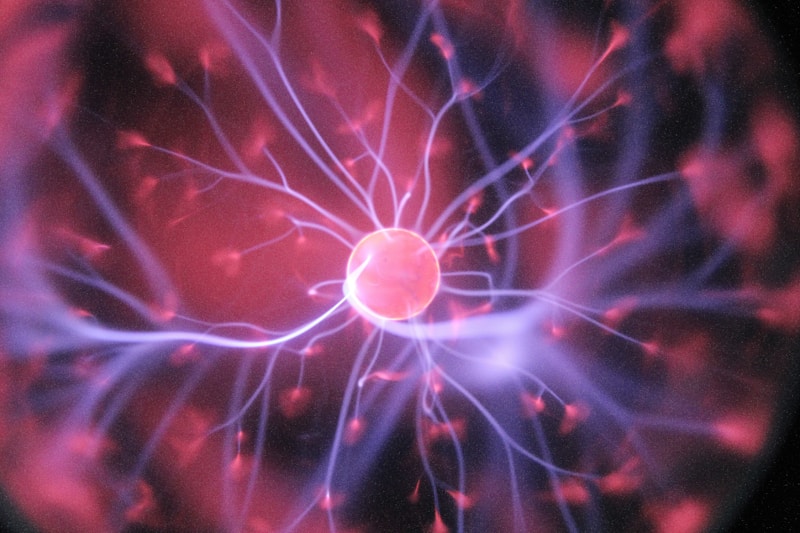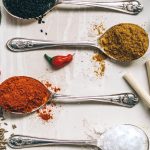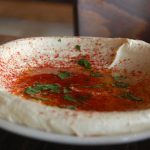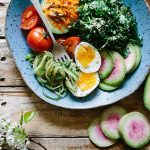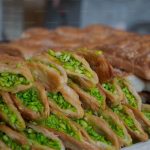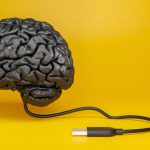Are you a morning person, a night owl or somewhere in between? Your tendency to sleep at certain times within a 24-hour period is regulated by your circadian rhythm, or in other words your body clock, which takes into account things like sunlight and temperature. However, sometimes things can go wrong and it’s just plain hard to fall asleep.
Have you ever had one of those nights where your mind seems to be fast-tracking through all those niggling things on your to-do list? Those sleepless nights could be triggered by many things like stress, direct and indirect light contact (like mobile phones) and even what you eat. All these factors can somehow affect your natural body clock.
Foods for Waking and Sleeping
In the case of food, that’s something we’re able to modify to increase our chances of sleeping soundly. Some foods have stimulating properties that can keep you up and alert, while others have soothing effects that could help you go into a state of calmness that leads to better sleep. For obvious reasons, it’s important to be able to tell the difference between the two!
Foods that can trigger your sleepless nights contain chemicals that have stimulating or exciting properties. Classic examples are coffee which contains caffeine, tea which contains theine and chocolate which contains theobromine; all stimulants that could be very helpful in the morning or for that post-lunch meeting, when you are actually trying to stay awake — but not ideal for right before bed. Other foods to avoid that could contribute to anxiety or poor sleep are those very high in sugar, alcoholic drinks and very fatty foods.
Sleepless nights also tend to be accompanied midnight snacking and overeating. Research indicates that if you sleep less you tend to consume more energy dense foods, like fried foods and sweets, you eat fewer vegetables and have more irregular meal patterns than someone who gets their eight hours every night. To avoid this non-sleep/bad-diet vicious cycle try integrating foods that help boost your levels of tryptophan and melatonin. Check these out:
1. Barley
Whole grains, especially barley, can be very useful in helping you get a good night’s sleep. It turns out that barley is rich in GABA, an amino acid that works in the central nervous system by inhibiting nerve transmission and therefore calming the nervous system. Barley also contains calcium, magnesium and B-complex vitamins; all wonderful nutrients that promote good sleep.
Ways to try barley into your meals could be by:
- Drinking it! There is a Korean tea called boricha that you could brew before bed, or you could try this fortified lemonade recipe: simmer barley in water, strain and add lemon and your favourite sweetener.
- Bored of oatmeal? Try mixing or replacing every now and then with barley.
- Add your favourite spices to your soup or salad to get an extra crunch and texture.
2. Lettuce
Lettuce often goes underappreciated, but it’s one of the foods we recommend to help you sleep better! Have you noticed that white liquid that comes from lettuce when you cut it? It’s called lactucarium which has relaxing and sleep-inducing properties. You can make an infusion or tea with it or silently thank them for their good work while eating your salad.
3. Bananas
Bananas are so versatile and make great snacks. Pop them into your cereal, yogurt or smoothie to help you drift off at night. Bananas have high levels of tryptophan — an amino acid that is also found in other foods like turkey and is in charge of producing other proteins and neurotransmitters. Tryptophan especially helps those people with mild insomnia or long sleep latency fall asleep faster. It’s also in charge of helping produce serotonin which keeps you feeling good and happy.
4. Cherries
Eating cherries not only contributes to a good night’s sleep but also saves you from the horrors of jetlag. This bright red fruit has the ability to inhibit the activity of two enzymes called COX-1 and COX-2 which are associated with the sensation of pain and inflammatory processes, so not only will you be ingesting a natural painkiller but it will also help you rest.
Cherries are one of the richest foods in melatonin, a hormone that helps regulate people’s sleeping patterns, according study where people with insomnia consumed cherry extract before going to bed. Other melatonin boosters include pineapple and seaweed. Eat them after a long plane ride or when struggling with insomnia.
5. Kiwi
Kiwi fruit contains many medicinal compounds that can help you sleep better. Among these compounds are antioxidants and serotonin that have shown to be helpful in many sleep disorders. Recent research has indicated that consuming one kiwi fruit a day could improve the duration, quality and how fast you fall asleep.
Make Diet a Part of Your Sleeping Ritual
Adding these foods into your diet can help you readjust your sleeping patterns. To your sleep even more, remember to turn off or get away from any unnecessary light sources or electronics and try to create a comfortable soothing environment around your area for sleeping. Try creating a habit or ritual that you follow that helps your body remember that is time to tuck into bed. Sleep tight!

